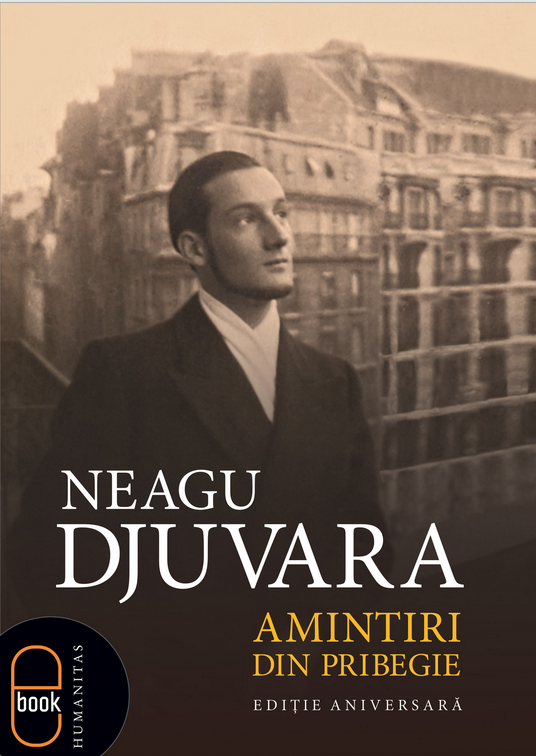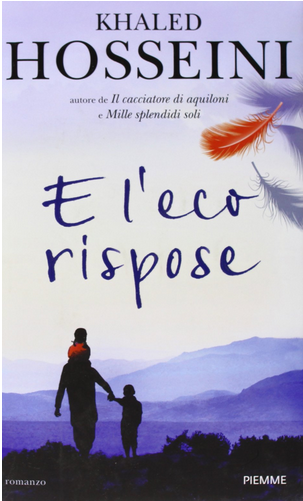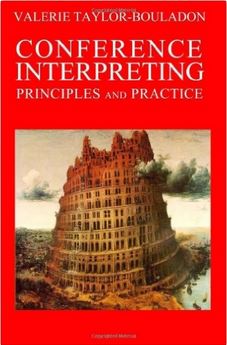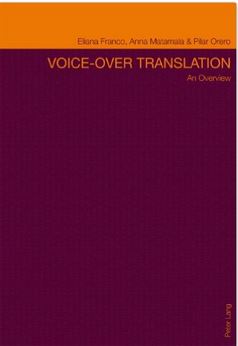Our Community
Get to know our community
Join Translation Journal
Click on the Subscribe button below to receive regular updates.
Heikki Särkkä
Question and Answer
- What is your name?
- Heikki Särkkä
- Where do you live?
- Seinäjoki, Finland
- How long have you been an interpreter or translator?
- 47 years
- What made you decide to become a translator or interpreter?
- main job, which was teaching English.
- List one strength that you think sets you apart from your colleagues.
- Ability to translate hand-written 17th c. Swedish
- Name the one thing that you most enjoy in your translating or interpreting career.
- Deciphering barely legible hand-writing.
- We all have worked on those not-so-perfect assignments. Write about one such assignment that was not ideal and what you learned from it.
- My biggest ever mistake was accepting a simultaneous interpretation job with no booth provided. I had had some experience of SI in normal circumstances, which I very much enjoyed. I should have turned the offer down without hesitation rather than believe talking in a low voice into a microphone in the same room with another speaker would be feasible. It is not.
- If you could go back in time to when you were just starting out as a translator or interpreter, what advice would you give to your younger self?
- Devise a system by which you can retrace a copy of all of you previous jobs during your career. The database should be searchable not only by the name of the client, but also by the type of text translated.
- Name one resource – such as a phone app, CAT tool, website, and so forth – that you find especially helpful in your translating or interpreting work.
- My wife has been an invaluable help in checking my translations into Finnish.
- What’s the best book you’ve read this year?
- Neagu Djuvara's autobiography Amintiri din pribegie (An exile remembers) comes pretty close to the top.
"Povestea vietii lui Neagu Djuvara are verva salbatica a unui peisaj luxuriant. Nu e suficient sa spui ca a trecut prin multe. A trecut prin tot. Razboi si Universitate, aventura si savantlac, exil si repatriere, Europa si Africa, diplomatie, filozofia istoriei, spionaj, jurnalistica, Sorbona, Niamey si Bucuresti, boierie si saracie, profesorat, politica, explozie creatoare dupa varsta de 80 de ani, anonimat si glorie, actiune, contemplativitate, radicalitate, cordialitate, hazard. Recunoaste singur ca a fost mereu insotit, in momentele decisive, de un «noroc» salutar. (Andrei PLESU)
Adelina Rossano
Question and Answer
- What is your name?
- Adelina Rossano
- Where do you live?
- Between Italy and Angola
- How long have you been an interpreter or translator?
- 7 years
- What made you decide to become a translator or interpreter?
- I am a DTP geek
- List one strength that you think sets you apart from your colleagues.
- Being my own boss
- Name the one thing that you most enjoy in your translating or interpreting career.
- I was asked to translate and doing DTP of some very technical manuals. Since I was assigned the job by an agency, every time I had a doubt or question I had to wait for an answer by the PM who had to forward the question to the end client. Lesson learned: try to acquire more direct clients and avoid such communication problems.
- We all have worked on those not-so-perfect assignments. Write about one such assignment that was not ideal and what you learned from it.
- Do not underestimate yourself and do not work for peanuts.
- What’s the best book you’ve read this year?
- E l'eco rispose - K. Husseini
Sulla strada che dal piccolo villaggio di Shadbagh porta a Kabul, viaggiano un padre e due bambini. Sono a piedi e il loro unico mezzo di trasporto è un carretto rosso, su cui Sabur, il padre, ha caricato la figlia di tre anni, Pari. Sabur ha cercato in molti modi di rimandare a casa il figlio, Abdullah, senza riuscirci. Il legame tra i due fratelli è troppo forte perché il ragazzino si lasci scoraggiare. Ha deciso che li accompagnerà a Kabul e niente potrà fargli cambiare idea, anche perché c'è qualcosa che lo turba in quel viaggio, qualcosa di non detto e di vagamente minaccioso di cui non sa darsi ragione. Ciò che avviene al loro arrivo è una lacerazione che segnerà le loro vite per sempre. Attraverso generazioni e continenti, in un percorso che ci porta da Kabul a Parigi, da San Francisco all'isola greca di Tinos, Khaled Hosseini esplora con grande profondità i molti modi in cui le persone amano, si feriscono, si tradiscono e si sacrificano l'una per l'altra.
Etienne K. Iwikotan
Question and Answer
- What is your name?
- Etienne K. Iwikotan
- Where do you live?
- Cotonou, Republic of Benin
- How long have you been an interpreter or translator?
- 17 years
- What made you decide to become a translator or interpreter?
- Love of languages and desire to facilitate communication
- List one strength that you think sets you apart from your colleagues.
- My interest in continuing education to learn new things and techniques
- Name the one thing that you most enjoy in your translating or interpreting career.
- Interpreting in a meeting for many days where communication flows and people sometimes do not even realize that there are interpreters in the booth
- We all have worked on those not-so-perfect assignments. Write about one such assignment that was not ideal and what you learned from it.
- When I was younger in the profession, I received an assignment but the text was not well-written at all. I translated the text to the best of my abilities but I was blamed for producing a poor quality translation even though the client acknowledged that the source text was not coherent. The lesson I leaned is that it is not possible to produce a good translation from a faulty source text. Following that experience, sometimes, I have had to make the difficult decision of requesting clients to kindly review a text before I can translate it.
- If you could go back in time to when you were just starting out as a translator or interpreter, what advice would you give to your younger self?
- As much as possible, prices should not be discussed over the phone Even in the absence of a contract, any agreed proce should be written
- Name one resource – such as a phone app, CAT tool, website, and so forth – that you find especially helpful in your translating or interpreting work.
- www.linguee.fr
- What’s the best book you’ve read this year?
- Conference Interpreting: Principles and practice, by Valerie Taylor-Bouladon
This book is now in its Third Edition having recently been revised and updated. It is also available as an e-Book (Kindle). It has been described by Sherrill J. Bell, Executive Director of NAATI at the time of its first publication, as "one of the most significant contributions to the field of interpreting and translating in Australia in the past decade. It represents the only major publication in Australia on this specific aspect of interpreting in recent years. As such, it provides an all-encompassing reference work for prospective conference interpreters, for conference organisers, for interpreting and translation educators and for individuals generally interested in the profession." "The book is written in a very free style that clearly reflects the enthusiasm and vibrancy of the author. Its content is informative and practical, often based on scientific principles, while at the same time interspersed with humour and fascinating anecdotes. The book has the remarkable quality of conveying serious and important concepts in a format that is user-friendly and enjoyable to read. In summary, Conference Interpreting is a most significant contribution to the field of interpreting in Australia and internationally. It should be required reading for all those involved with the profession. It begins with the history of interpreting in Europe and Australia, then looks at how it is done today, and what lies ahead. The different modes of interpretation are explained; there are tips for beginners such as how to overcome stage fright, what to do if you miss something, booth behaviour and microphone manners, how to become a graceful scapegoat, economise your voice and make delegates laugh as well as how to deal with Australianisms. A chapter is devoted to conference organisers, another to protocol and etiquette, after-dinner speeches and press conferences, as well as the duties, responsibilities and ethics of the profession, how to improve your performance, working for radio and television and the special requirements, gravity and complexity of court interpreting. The bodies that make up UN and EU are detailed and the languages used. Finally a comprehensive bibliography is given with suggestions for further reading. This book is intended to help language students, would-be interpreters, conference organizers and delegates as well as those who have studied interpretation techniques but lack booth experience and are reluctant to launch themselves into this challenging but satisfying, stimulating, even exhilarating, profession. It is not about the theory of interpretation but rather a 'hands-on' manuel explaining how simultaneous interpretation works, how it is done, the pitfalls to avoid, which languages are most in demand and where.
Ayonghe Lum Suzanne
Question and Answer
- What is your name?
- Ayonghe Lum Suzanne
- Where do you live?
- Cameroon
- How long have you been an interpreter or translator?
- 11 years
- What made you decide to become a translator or interpreter?
- My love and strong background in Computing; the fact that I could speak and write English and French; the fact that I could use computers to do many things. Thus, I believe I could also use computers to translate from one language to another with ease. Also, I knew that I could get a job and/or make some money by translating.
- List one strength that you think sets you apart from your colleagues.
- My interest in continuing education to learn new things and techniques
- Name the one thing that you most enjoy in your translating or interpreting career.
- My speciality is Audiovisual Translation and Computer Assisted Translation. However, I like subtitling films or programmes.
- We all have worked on those not-so-perfect assignments. Write about one such assignment that was not ideal and what you learned from it.
- Most often, I am assigned to assist in carrying out duties related to computers just because of the knowledge I have in that area. This has nothing to do with translation. For instance, teaching Excel to a secretary and how to produce statistics from it. However, there is always one or two things learned from these types of assignments. By teaching, I learn new options that I never knew. Sometimes I am given a document to translate and the time given is very short. I usually call on my best students and give them the job. They do the translation and receive the money. At least I can sometimes rely on some of my students when there is a lot of translation work to do. This is also a training process for them.
- If you could go back in time to when you were just starting out as a translator or interpreter, what advice would you give to your younger self?
- I would advice my younger self to have an open mind: a tolerant and a flexible mind. A mind that is ready to learn any new skills coming up. An evolving mind that changes and improves as time goes by. In short, as a translator, I should change with time. In Cameroon for example, a translator may sometimes be asked to do other jobs (service provider jobs, secretarial jobs, etc.)unrelated to translation. I should be able to do these in addition to my translation jobs.
- Name one resource – such as a phone app, CAT tool, website, and so forth – that you find especially helpful in your translating or interpreting work.
- For translation, I use TRADOS, WordFast and the Internet
- What’s the best book you’ve read this year?
- Voice-Over Translation. An Overview. By Eliana Franco, Anna Matamala and Pilar Orero.
This book presents the first study of voice-over from a wide approach, including not only academic issues but also a description of the practice of voice-over around the globe. The authors define the concept of voice-over in Film Studies and Translation Studies and clarify the relationship between voice-over and other audiovisual transfer modes. They also describe the translation process in voice-over both for production and postproduction, for fiction and non-fiction.
The book also features course models on voice-over which can be used as a source of inspiration by trainers willing to include this transfer mode in their courses. A global survey on voice-over in which both practitioners and academics express their opinions and a commented bibliography on voice-over complete this study. Each chapter includes exercises which both lecturers and students can find useful.



